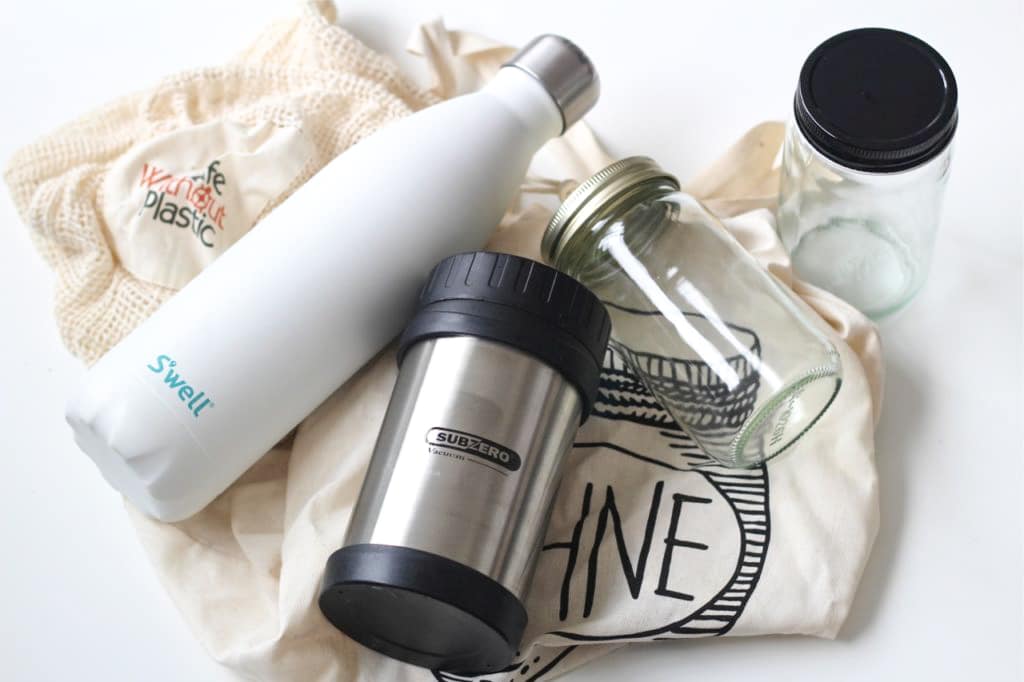
How to Easily Reduce Your Plastic Waste in 6 steps

We live in a world where 8.3 billion metric tons of plastic have been produced since 1950, with around half of it made since 2004. (Source: New York Times). Most of it (79%) was tossed, which means it is either in a landfill, gets burned, or ends up in the ocean. A recent study concluded that if the trends continue the way they have, we will end up with 4 times the plastic waste in the next 30 years. (Source: Science Mag)
That sounds very depressing, but the good news is that there is something we can do about it. While we are waiting for governments to do something drastic about it, we can take matters into our own hands. We sometimes forget how much power we have as consumers. Recycling is definitely important but comes with a whole host of issues: In short only 10-20 % of plastic bottles can be recycled. And even in the best circumstances recycling downgrades the quality of plastic and can therefore only be done about 1-2 times before it ends up in the landfill where it pollutes our environment. The best thing for our planet and us is to avoid trash in the first place. With my 6 steps to reduce your plastic waste, I will show you easy alternatives for any lifestyle, and the best part is that you will save money as well.
1. Say no to plastic bottles.
Bottled water, soft drinks, cold-pressed juices, etc. all come in plastic bottles. Once conscious about it, it is very easy to avoid these sources of plastic trash. Did you know that every minute, one million plastic bottles are bought around the world? (Source: The Guardian)
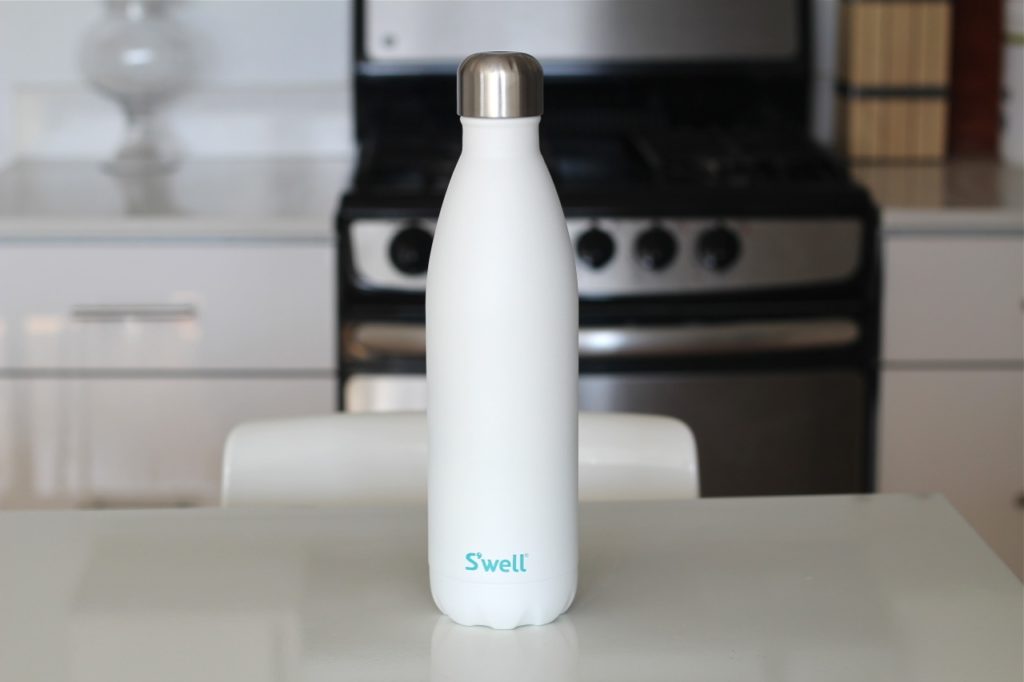
Alternatives:
- Choose brands that use glass bottles whenever you grab a beverage on the go.
- Bring your own mason jar or any other reusable jar and get a fresh juice instead of a bottled one.
- Bring your reusable water bottle with you. My favorite brand is S’well. It keeps the water ice cold for 24 hours and your drinks hot for 12 hours. Say bye-bye to warm plastic tasting water in the hot summer months and save a lot of money in the long run.
2. Ditch the coffee/tea or smoothie to-go cup.
Have you ever taken a look at the public trash cans in recent years? They are overflowing with to-go cups. This 5-10 minute pleasure that we feel like we need to get through the day produces a lot of unnecessary trash. “Paper” coffee cups are lined with plastic and are therefore not recyclable. 50 billion cups in the U.S. end up in landfills every year, that equals approximately 5 times to the moon and back if placed end to end. (Source: CNN)
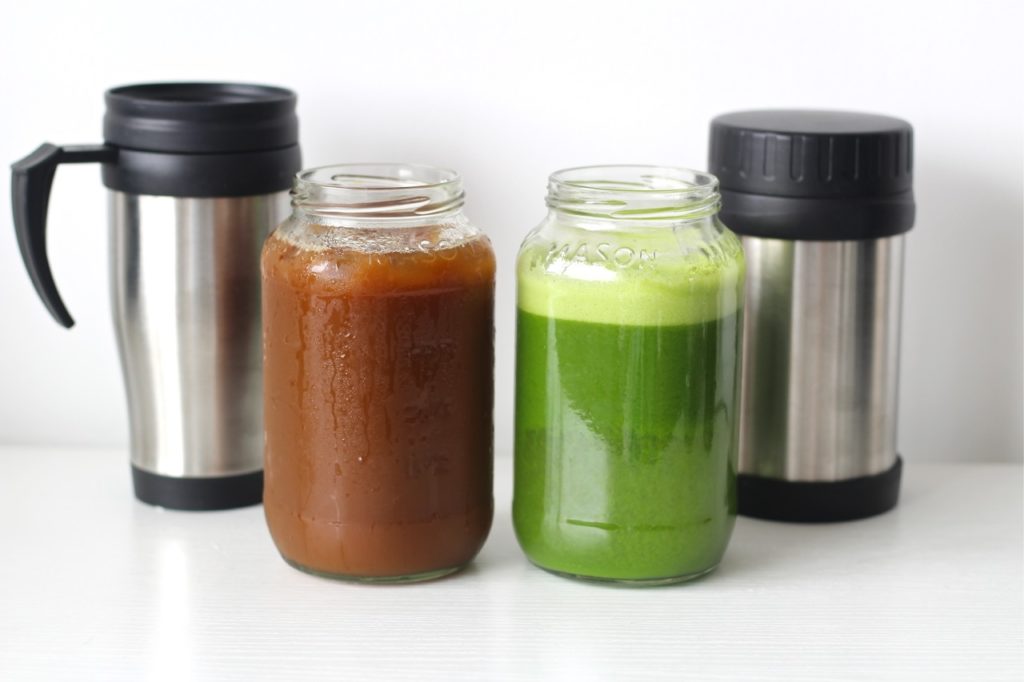
Alternatives:
- Choose to actually sit down in a café or juice bar/restaurant to enjoy your drink in a real glass/cup. It will do your nervous system good too.
- Bring your own reusable cup or mason jar; most places will give you a discount.
- How much will it affect your happiness or day if you just don’t get a drink to go at all? A lot of it is a habit and not too long ago people were perfectly happy without it. You will save lots of $$$ (our beloved $4 dollar Starbucks coffee a day adds up to $1460 a year!!!!) and help out the planet at the same time!
3. Say no to plastic bags.
How annoying are plastic bags? And they are everywhere, even hanging in trees! Did you know that in the US over 380 billion plastic bags and wraps are being used per year? (Source: EPA)
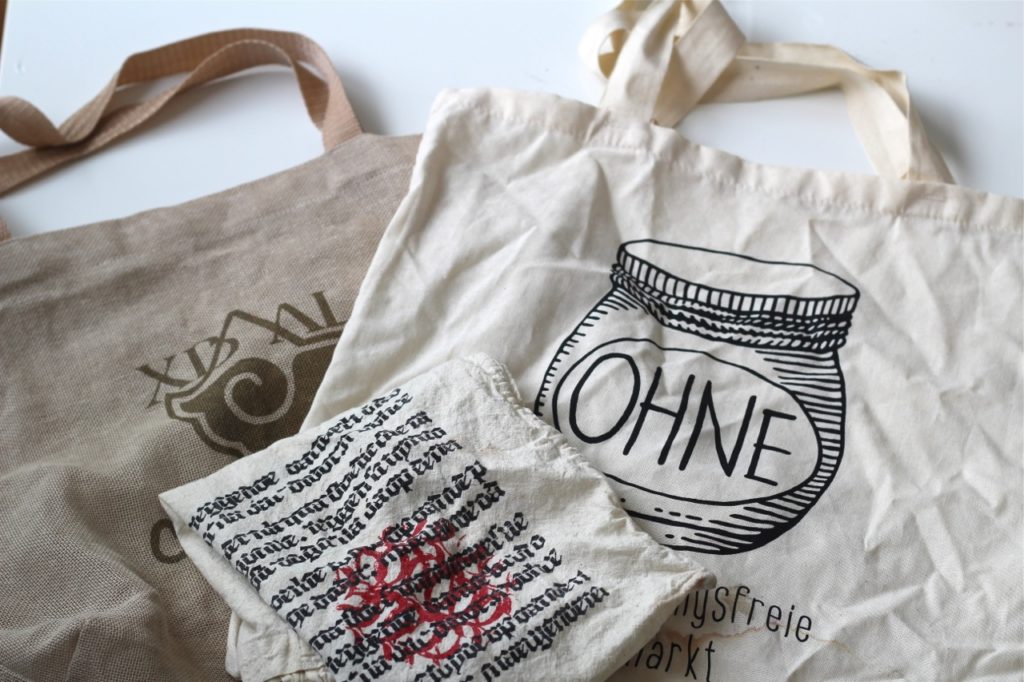
Alternatives:
- Have your own reusable shopping bag in your purse or backpack. A lot of supermarkets will give you a discount when you bring your own bag.
- How many times do we get a bag that we don’t even need? A bag for 1 toothpaste for example. Just say: “no, thank you!”
- Use the plastic bags that you already have (don’t we all have tons of them piling up somewhere in the house?) for your trashcan and once you run out, start buying compostable trashcan bags like this one.
4. Avoid plastic when grocery shopping.
When I switched to going plastic-free I followed Lauren Singer’s advice and took a look at my trashcan. Almost everything in there was packaging from grocery shopping. Most of it landed in the trash right after I arrived home. What a waste! Did you know that food packaging is the largest contributor (23 %) to the cost associated with the impact that plastic packaging has on the environment? (Source: UNEP)
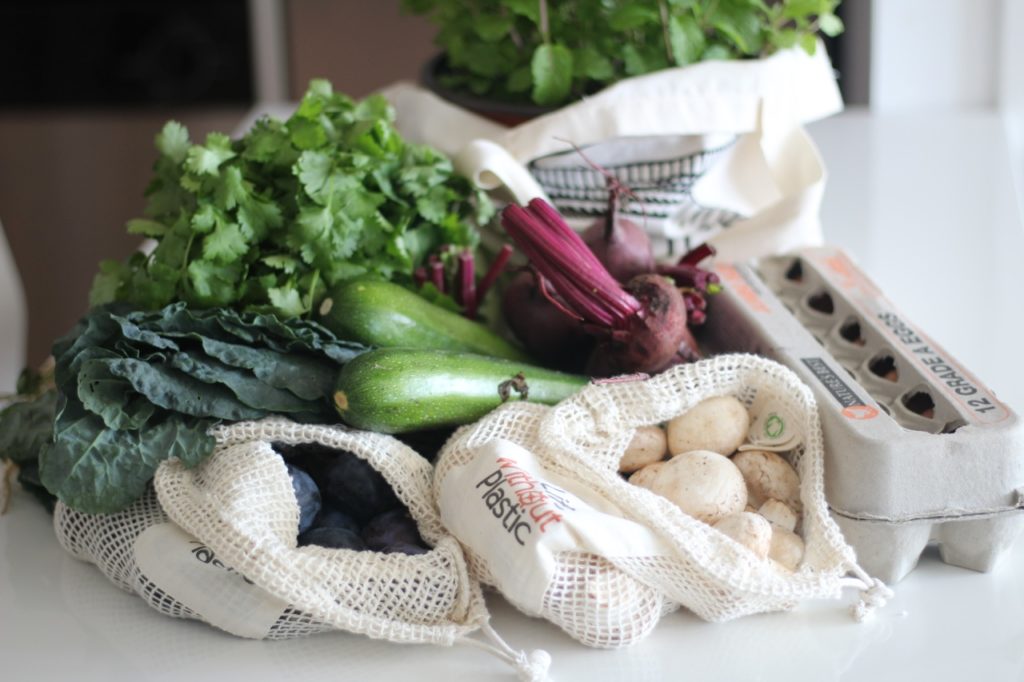
Alternatives:
- Buy cheese, meat, and fish at the counter instead of packaged in unnecessarily big and sturdy plastic.
- Buy fruits and vegetables from the fresh produce section that are not pre-cut or wrapped in plastic and nets etc. Shopping at your local farmers market will make this a lot easier.
- Avoid small plastic bags for fruits and veggies. Use these reusable ones instead or simply omit them. Potatoes, bananas, avocados, etc. don’t need to be in a bag.
- Buy oils and sauces in glass bottles/jars.
- Ditch processed and packaged foods whenever possible. It is bad for you anyways.
- If available to you, buy grains, nuts, etc. in the bulk section of the market bringing your own containers or produce bags.
5. Ditch or cut down on take-out food.
Have you ever wondered why you have to run to take out the trash every day? Have you ever taken a second to observe the amount of trash after ordering take out food?
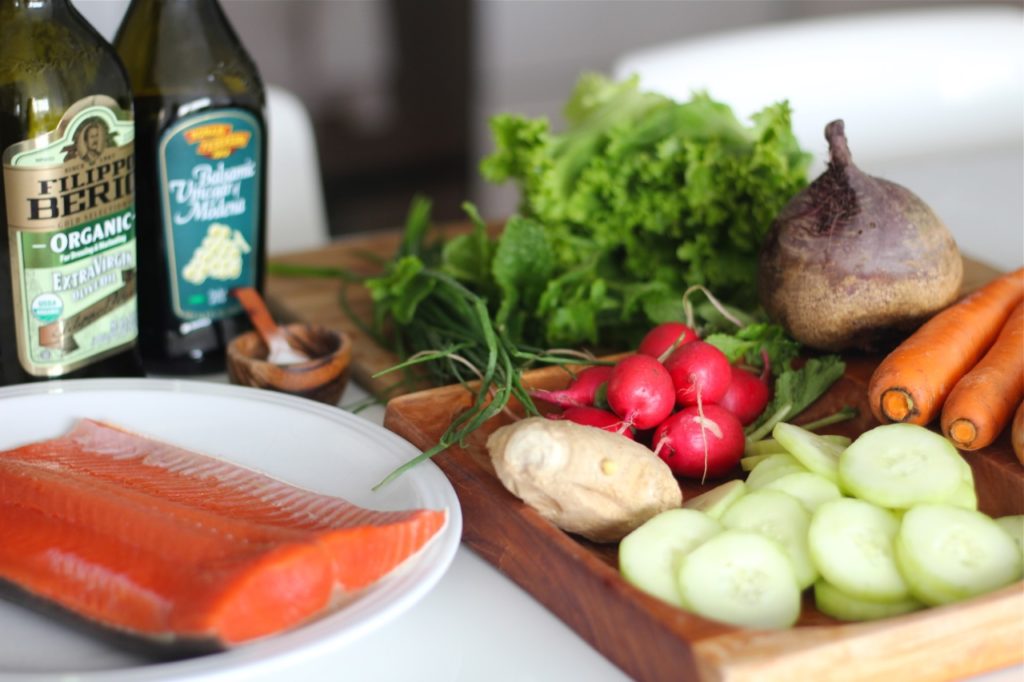
Alternatives:
- Home-cooked food is cheaper, healthier and produces a lot less trash. If you don’t know how to cook or find yourself being too busy, subscribe to my newsletter to get a copy of my free ebook on home cooking for busy people.
- Go to a restaurant instead of ordering home.
- When eating at a deli, ask to get a regular plate. If they don’t have it, at least don’t get the plastic lid and the bag.
6. Swap out your personal care products.
Take a look at your bathroom and you will quickly realize that a lot of future plastic trash can be found here. Personal care products such as shampoo, conditioner, body wash, moisturizers, lotion…. the list goes on.
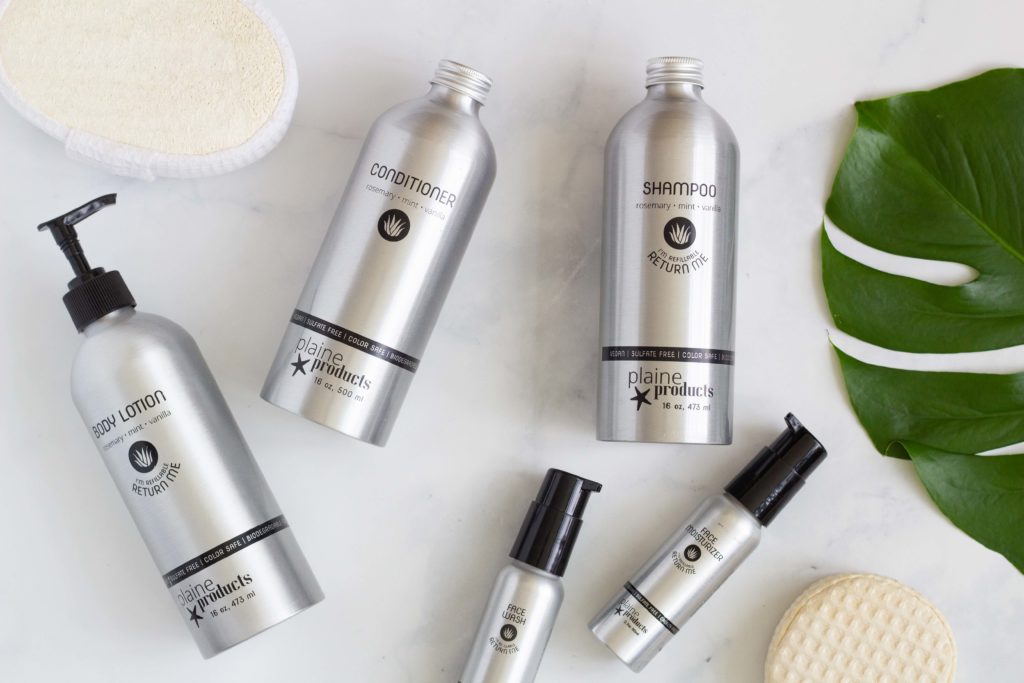
Alternatives:
- Swap out personal care products that come in better packaging such as glass, paper or aluminum. This will most likely also expose you to fewer chemicals as eco-conscious brands mostly take the quality of the actual product into consideration as well as the packaging.
- Replace handsoaps or body wash with bar soaps. You can buy them unpackaged at for example Wholefoods.
- Zero-waste stores and health food stores often have personal care products in bulk as well. Meaning you can bring your own bottle and refill it. You can find a store near you with this app or a simple google search.
- Plaine Products is my favorite brand when it comes to personal care products. To find out more read my article.
- It might take a while to find replacements for the products you like, so be patient with yourself. Use up what you currently have and then slowly replace each product. And keep in mind that even if you are not willing to replace all of your favorite products, that any change you make makes a difference.
Bonus:
- Ask at your local stores and restaurants for plastic alternatives and if they can help reduce waste.
- Ask to get your drink without a straw when you are in a restaurant.
- If you are ready to make more changes, look for alternatives to the products that you want to replace or that you ran out of. Life without plastic has great resources for zero waste products.
The more we are making our voices heard as consumers, the more change will happen. Just like with any other lifestyle changes give yourself some time to get used to it, it will soon become second nature. And remember, every little thing you do makes a difference. If it feels overwhelming, start small and work your way up there in your own pace. 🙂
Sources:
C&EN – The Cost of Plastic Packaging
EPA – Confronting Plastic Pollution One Bag at a Time
The Guardian – A million bottles a minute
CNN – This Papercup Can Be Recycled
Science – 4 Times More Plastic Waste in 30 Years
*Disclaimer: “We are a participant in the Amazon Services LLC Associates Program, an affiliate advertising program designed to provide a means for us to earn fees by linking to Amazon.com and affiliated sites.”
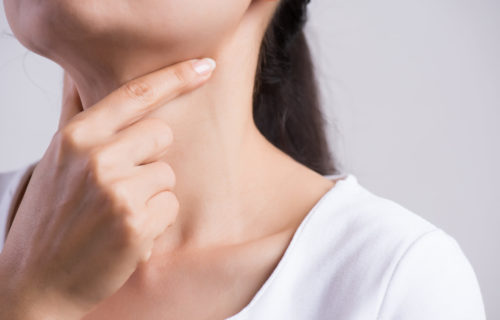


Add A Comment